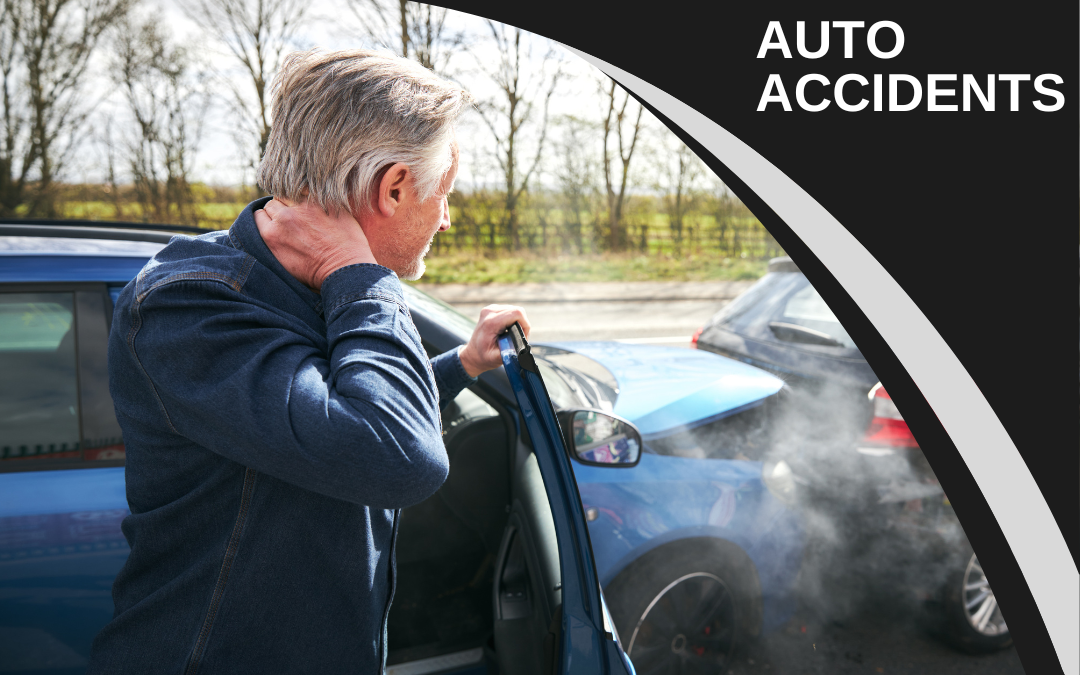
Frequently Asked Questions (FAQs) About Auto Accidents
What Should I Do Immediately After a Car Accident?
Immediately following a car accident, ensure your safety and the safety of others involved. First, check for injuries and call 911 if anyone is hurt. Move to a safe location if possible and turn on your hazard lights. If it’s safe, exchange information with the other driver(s), including names, contact details, insurance information, and vehicle registration. Document the scene by taking photographs of the vehicles, damage, and any relevant road conditions or traffic signs. Collect contact information from witnesses if available.
Avoid discussing fault at the scene; this is best left to insurance companies and legal professionals. Notify your insurance company as soon as possible to start the claims process. Lastly, seek medical attention even if you feel fine, as some injuries might not be immediately apparent. Following these steps can help ensure your rights are protected and facilitate a smoother resolution to the accident.
How Do I File an Insurance Claim After an Auto Accident?
Cooperate with their investigation by providing any additional information or documentation requested. Keep records of all communications with your insurance company. Once the claim is approved, the insurer will either cover the repair costs directly or provide you with a settlement check. It’s important to review your policy to understand what is covered and any deductibles that may apply.
What Are My Legal Rights After a Car Accident?
Be aware of the statute of limitations, which is the time limit within which you can file a lawsuit. Each state has its own statute of limitations for personal injury claims, so consult with a legal professional to ensure you file within the required timeframe. Consulting with an attorney can help protect your rights and navigate the complexities of the legal process.
What Happens If I Don’t Have Insurance and I’m in an Accident?
The other party may file a lawsuit to recover their losses, which could affect your finances and credit rating. Some states have uninsured motorist coverage, which might help cover damages if you’re hit by an uninsured driver, but it won’t help if you’re the at-fault driver without insurance. It’s advisable to obtain insurance coverage to comply with legal requirements and protect yourself financially in case of an accident.
How Can I Determine Who Was At Fault in a Car Accident?
In some cases, fault might be shared between drivers, known as comparative negligence. This means each party may be held partially responsible for the accident based on their degree of fault. State laws vary on how comparative negligence affects compensation, so understanding your state’s regulations is important. Consulting with an attorney can help you navigate fault determination and ensure that your rights are protected throughout the process.
What Should I Do If the Other Driver Flees the Scene?
Notify your insurance company about the hit-and-run, as they may cover damages through uninsured motorist coverage, depending on your policy. Cooperate with the police and your insurer throughout the investigation. While hit-and-run incidents can be challenging, taking these steps can help you manage the situation and potentially recover compensation for damages.
How Does an Accident Affect My Insurance Rates?
However, if the accident was not your fault and you can prove it, your rates might not be affected as significantly. Some states have laws that regulate how much and for how long insurers can raise rates after an accident. Additionally, frequent claims or accidents can lead to higher long-term increases. To mitigate the impact on your rates, consider maintaining a clean driving record and exploring different insurance providers to find the best rates available.
What Should I Know About Auto Accident Lawsuits?
A lawsuit can result in a trial where a judge or jury determines fault and awards damages based on the evidence presented. It’s important to understand that lawsuits can be time-consuming and costly. Legal fees, court costs, and the time required for litigation can add up. Settlement negotiations are often a viable alternative to trial and can lead to a resolution without the need for court involvement. Consulting with an experienced attorney can help you understand your legal options and guide you through the litigation process.
What Are the Common Injuries Sustained in Auto Accidents?
Some injuries may not be immediately apparent, so it is important to seek medical attention even if you feel fine after an accident. Prompt diagnosis and treatment are essential for recovery and for documenting your injuries for insurance claims or legal actions. Keeping thorough medical records will help support your case and ensure you receive appropriate care and compensation.
What Should I Do If I Am Injured in a Car Accident?
If you are injured in a car accident, taking the following steps can help ensure you receive appropriate care and compensation. First, seek immediate medical attention, even if your injuries seem minor. Some injuries may not be immediately visible or symptomatic. Document your injuries and treatment by keeping detailed records of medical visits, diagnoses, treatments, and expenses. Notify your insurance company about the accident and your injuries to start the claims process. Provide them with all relevant documentation, including medical records and bills.
If the accident was caused by another party’s negligence, you may be entitled to compensation for medical expenses, lost wages, and pain and suffering. Consulting with an attorney specializing in personal injury law can be beneficial to understand your legal rights and options. They can help you navigate the complexities of filing a claim or pursuing legal action, ensuring that you receive the compensation you deserve for your injuries.
